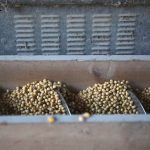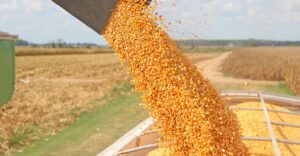UGA warned about the consequences of introducing export duties on soybeans and rapeseed

The Ukrainian Grain Association calls on the parliament to reject the “oil amendments” — export restrictions on soybeans and rapeseed.
The UGA звернулась appealed to the Verkhovna Rada of Ukraine with a demand to reject the proposed introduction of export restrictions on oilseeds.
The association also appealed to the President of Ukraine, the government and ministries with a request to make efforts to prevent the introduction of discriminatory duties in violation of the legislative procedure and contrary to the Agreements with the EU.
The UGA explained that currently, individual market participants and industry associations are proposing the possible introduction of export duties or quotas on oilseeds. In particular, the Draft Law “On Amendments to the Tax Code of Ukraine Regarding Expanding Patients’ Access to Medicines Subject to Procurement by a Person Authorized to Make Procurements in the Healthcare Sector by Concluding Managed Access Agreements” No. 13134 of March 23, 2025 is being prepared for the second reading. It plans to make appropriate changes to the legislation through amendments to this law in order to introduce duties on the export of oilseeds.
As noted by the UGA, the proposed amendments to draft law No. 13134 provide for the introduction of export duties or quotas for soybeans and rapeseed. The UGA categorically opposes these initiatives, which could deal a devastating blow to the agricultural sector – one of the few sources of stable foreign exchange earnings during the war.
In 2023, oilseeds and their processed products alone provided over $7 billion in export earnings. The association categorically opposes the proposed changes as economically, socially and reputationally dangerous for the state and its international image, given the following risks:
• discrimination against small and medium-sized producers who are unable to independently export their products and will be forced to sell them on the domestic market at low prices.
• manipulative nature of the amendments, which creates artificial pressure on purchase prices in order to obtain benefits for individual agricultural holdings and processors at the expense of farmers.
The UGA is convinced that the more buyers or export options for oilseeds, the greater the liquidity of products and, as a result, demand competition will increase the producer’s profits, which will positively affect both the community budget and the state budget.
In addition, the violation of already concluded forward contracts will cause significant losses not only to Ukrainian producers and exporters, but also to partners in the EU. Rapeseed and soybeans are grown in Ukraine under forward export contracts that have already been concluded and cannot be changed. Such export regulation measures cannot be adopted without prior notice and transitional norms for the implementation of concluded contracts.
It also violates the terms of the Association Agreement with the EU, which explicitly prohibits the introduction of new permanent export duties. At the same time, the amendments do not contain time limits and in fact introduce duties on a permanent basis. This creates a risk of aggravation in negotiations on the renewal of free trade conditions with the EU. In addition, the changes are being adopted at the same time as Ukraine is discussing new terms of the free trade agreement with the EU, and may lead to a breakdown of the negotiations. Accordingly, the private interest of several market operators is given priority over Ukraine’s national interest in deepening integration with the EU.
A possible EU response, in particular in the form of import duties on Ukrainian soybean and rapeseed products, is already being discussed by European industry associations.
The dubious legislative procedure, in particular the hasty introduction of amendments to a non-core draft law, the lack of a transparent discussion and ignoring the position of the business community, undermine trust in the Verkhovna Rada and raise suspicions about the personal interests of individual parliamentarians.
Therefore, the proposed measures not only do not achieve the stated goals, but also distort competition, oppress small producers and reduce the total volume of foreign exchange earnings, the association summarized.
UGA calls on behalf of the grain community:
• The Verkhovna Rada of Ukraine – to reject the amendments on export restrictions as such, which violate the Rules of Procedure of the Verkhovna Rada and threaten the economic security of the state.
• The government of Ukraine – to initiate an open dialogue with business before making decisions in the field of foreign trade.
Also, both the government and the parliament should officially confirm their intentions not to introduce restrictions on the export of oilseeds by excluding the relevant amendment from the draft law.
UGA is convinced that this will send a positive message to the market and protect market participants from any speculation on this topic. In addition, UGA asks to initiate an open dialogue with business before making any decisions in the field of foreign trade, as well as to develop a balanced strategy for the development of both domestic processing and the export potential of Ukraine.
UGA and the entire grain community are deeply convinced that a transparent, balanced and partnership policy of the Parliament, the Government and the business environment will allow maintaining trust in Ukraine as a supplier of grain and oilseeds in the world and ensuring the sustainability of the development of the agricultural sector even in war conditions.
USM previously reported that Ukrainian agricultural exporters are looking for new markets through EU tariffs.





